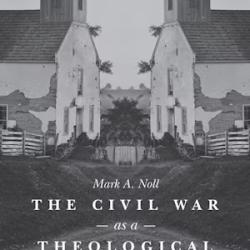The point in going back to "the beginning" is this: sin has terribly distorted our understanding of human sexuality. In order to understand God's original intention for it, we have to return to "the beginning" before sin distorted it. That's the foundation of everything.
If there is anything we can say about same sex attraction in light of the Gospels it is this: "In the beginning it was not so" (Mt. 19:8). This is not a condemnation of those who experience an orientation towards their own sex. But we must be willing to examine—however politically incorrect it may be—the ways in which sin has disoriented our sexual desires. Guess what: there's not a single person on the planet who has not been, in one way or another, sexually disoriented by original sin. Sexual desire, in all of us, has become inverted, self-seeking. It's called lust.
We think this is "normal," but "in the beginning it was not so." In the beginning, they experienced sexual desire as the very desire to love selflessly, as God loves. And this selflessness in their desire was intimately connected to their fertility, to the call to be "fruitful and multiply." This selflessness is what enabled them to be "naked without shame" (Gen. 2:25). The entrance of the fig leaves marks the beginning of sexual "disorientation" for every single one of us: away from self-giving love, and away from fertility.
So we're all in need of sexual healing and redemption. We're all—every single one of us—in need of sexual "re-orientation": away from lust, and back toward God's plan for it in the beginning. And here's the good news of the Gospel: Christ came into the world to restore creation to the purity of its origins. If we take up our cross and follow him—whatever our particular burdens or struggles might be—we can experience inner transformation and renewal, inner restoration of God's original design. As John Paul II said: "Christian ethos is characterized by a transformation of the human person's conscience and attitudes ... such as to express and realize the value of the body and sex according to the Creator's original plan" (TOB 45:3).
Since the question of same sex attraction is such a sensitive topic, allow me to suggest some further reading in my book Good News About Sex and Marriage. There I unfold the application of John Paul II's teaching on this question in some detail.
What was the hardest thing about writing this book?
Writing a book is a bit like having a baby. There are lots of labor pains involved. This book went through several drafts. At one point, I thought I was finally ready to turn it in to the publisher, but then a theologian friend of mine suggested some changes. He didn't have any issues with my theology, but he recommended some stylistic changes that meant I had to pull a few all-nighters to get it completed on time. There's no epidural for authors in those moments.
You say of your study of the Theology of the Body that "there is always more to learn, always more to appreciate, always more to see." What new wisdom are you discovering even now, after completing the book?
I often hear people say, "Oh yea, I've been to a talk on the TOB" or "I've read an article on the TOB—I get it." Gosh, I've been at this full time for nearly twenty years and I'm still learning. The TOB is the sophisticated work of a mystical theologian. John Paul II is exploring infinite mysteries here. One never "gets it." There is always more, always.
In terms of things that I continue to learn, I'd say I'm coming to a deeper appreciation of John Paul II's teaching that Christ's words in the Sermon on the Mount show us "how deep down it is necessary to go, how the innermost recesses of the human heart must be thoroughly revealed" if we are to live the "purity of heart" to which Christ calls us (TOB 43:5). In his teaching on the stages of purification through which we all must pass, St. John of the Cross observes that a person may spend many years in a stable place of service to the Lord before the need for deeper purification presents itself. One of the dangers of this extended place of stability, he says, is that of becoming "too secure" in the progress we've made. To rescue us from this trap, God allows us to undergo various external and internal trials that reveal to us new depths of our own poverty.
I'd say that pretty well sums up the last few years of my life. In some ways, I think I had become "too secure" in the healing I had received through John Paul II's teaching. As a result, I convinced myself that I had some sort of "strength" to offer the Church and the world. The Lord, in his mercy, has been helping me see that all I really have to offer is my weakness. The TOB is a message of how God's grace is sufficient for us, and how God's power is made perfect in our weakness. That's been the wisdom of the TOB that I've been taking to heart. We carry a treasure in fragile, earthen vessels. And the only thing we have to boast in is our weakness.





